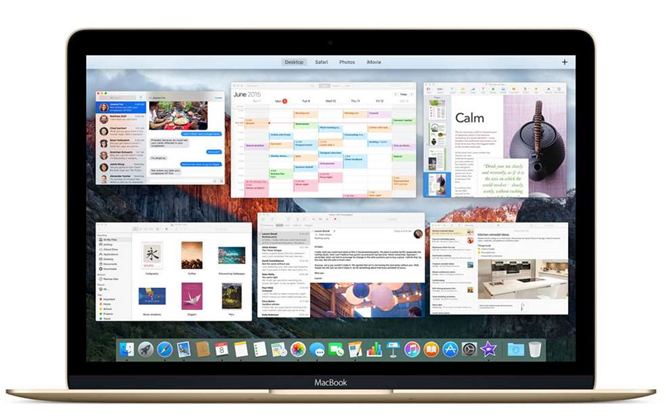Apple's new OS X 10.11 operating system for desktops and laptops will become generally available to Mac users from September 30, the company revealed today.

The company sneakily changed the message on its El Capitan preview page to reveal the release date during this morning's presentation of new iPhones, a larger iPad, new watch and mobile operating systems, and an updated Apple TV and iPad Mini.
Apple first unveiled the operating system in June at its developer conference. Codenamed El Capitan, it has so far been available as a preview, and will officially arrive for all Apple desktop users at the end of this month.
Developers and those who participated in the public beta program will get the release version of El Capitan early, starting today.
The company named the OS after a rock formation in the Yosemite National Park in California.
El Capitan boasts a significant number of improvements to OS X 10, including improvements to the Spotlight search function that will allow it to understand natural language queries, alongside the ability to find results from wider sources.
A new 'Split View' window management mode lets users run apps side by side in full screen, while the Expose feature can resize windows. Both features are also now available in the new iOS 9 mobile operating system on the new iPad Pro.
Similarly, the Notes application can now include photos, videos, URLs and map locations as well as checklists, and sync across all Apple devices with iCloud.
Tweaks to gestures allow emails to be managed with one swipe, and a full-screen mode in Mail lets users work on several messages at once.
As with iOS 9, Apple has added support for public transport options such as trains and buses in El Capitan's Maps application, but the feature is only available in the US.
Under the hood in El Capitan, Apple is introducing its own optimised Metal hardware abstraction layer, which also arrived in iOS 9. Developers can use Metal instead of the open standard OpenGL graphics framework, for higher performance thanks to improved access to hardware features.
Apple has also taken the opportunity to improve security in OS X with El Capitan, further isolating apps from system and user data, and quietly patched a number of potential vulnerabilities in the older versions of the operating system.


_(28).jpg&h=140&w=231&c=1&s=0)

_(36).jpg&h=140&w=231&c=1&s=0)
.png&h=140&w=231&c=1&s=0)





 iTnews Benchmark Awards 2026
iTnews Benchmark Awards 2026
 iTnews Executive Retreat - Security Leaders Edition
iTnews Executive Retreat - Security Leaders Edition
 iTnews Cloud Covered Breakfast Summit
iTnews Cloud Covered Breakfast Summit
 The 2026 iAwards
The 2026 iAwards












_(1).jpg&h=140&w=231&c=1&s=0)



